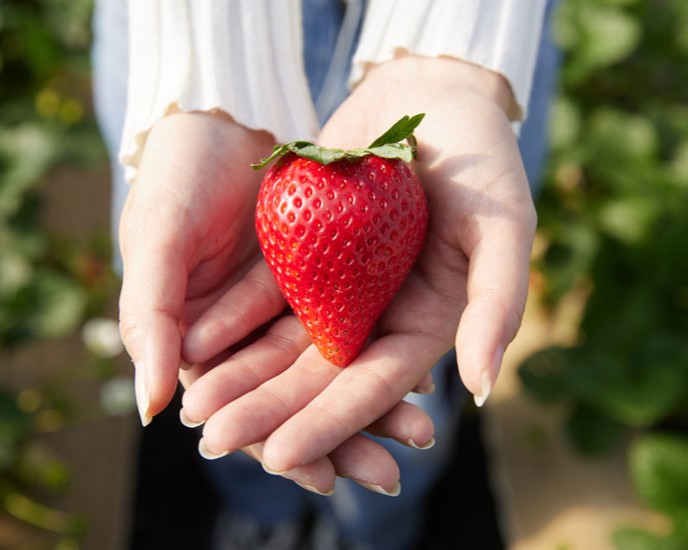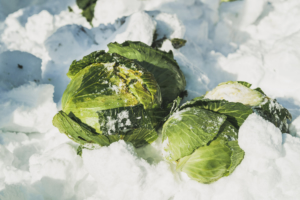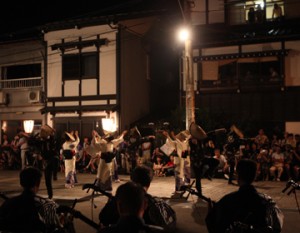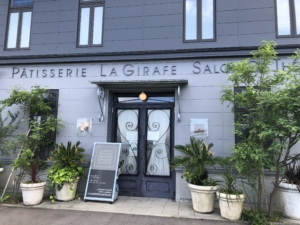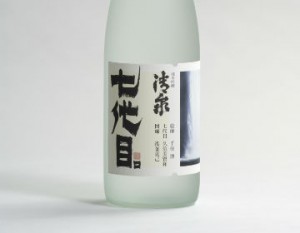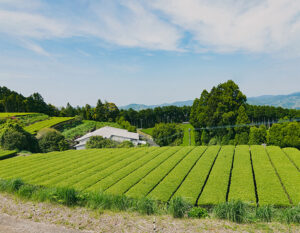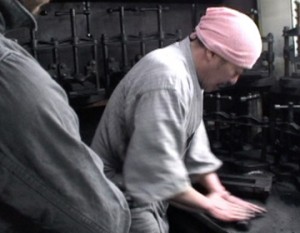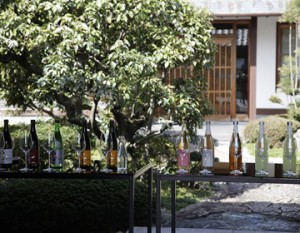Tochigi Prefecture is Japan’s largest producer of strawberries, producing nationally famous varieties such as Tochiotome, Skyberry, and Tochiaika. Within Tochigi Prefecture, the city of Mooka is also one of the top producers and sellers of strawberries. There are farmers who continue to produce “Tochigi strawberries,” aiming not only at Japan but also at the world.
The top runner in Mooka, the capital of the “Strawberry Kingdom of Tochigi

Moka City is located in the southeastern part of Tochigi Prefecture, on the northern edge of the Kanto Plain. It is a region blessed with nature, with the Kinugawa River flowing in the west and the Yamizo production area in the east. Combined with its rich soil and easy access to metropolitan areas, agriculture for shipment to the Tokyo metropolitan area is also thriving. Tochigi Prefecture has been Japan’s largest producer of strawberries for more than 50 years, and Moka City ranks first in the nation in terms of production by municipality. The city’s natural environment, characterized by long hours of sunlight in winter, large differences in temperature, and abundant water, is said to be suitable for strawberry cultivation. There are more than 400 strawberry farmers in the city, and the city is making a citywide effort to cultivate strawberries, so much so that the city has declared itself the “capital” of the “Strawberry Kingdom Tochigi” by 2023.
In 2022, Berry’s Baton, a strawberry farmer in Moka City, will receive the “Tochigi Prefecture Agricultural Grand Prize,” an award for farmers and organizations that contribute to society through their efforts to improve agricultural management, etc. In 2022, the company won the grand prize in the “Agricultural Management Category” of the “Tochigi Prefecture Agricultural Grand Prize,” an award given to farmers and organizations that contribute to society through their efforts to improve agricultural management. Mr. Koichi Arai, the representative of the company, leads such a remarkable strawberry farmer.
It’s not what I heard.” It’s a lot harder than I thought it would be. ……

Mr. Arai, the representative of the company, was born as the third generation of Arai Farm, a strawberry farmer that has been in business for over 50 years. He played baseball until high school, when he gave up the game to become a professional due to injury. With encouragement from his father, he decided to take over the family business.
Still young, Mr. Arai’s first goal was to “earn money. He had been told by his father that strawberries were good for money, but when he started working, he was astonished to find that it was not what he had heard. There were hardly any employees, and they worked from morning to night without a break. In addition, the wages were low and far short of what he wanted to earn.
Despite the “hardship,” he also found farming interesting. When he was playing baseball, he was always thinking about how much nutrition he should take for his body and what kind of training would be effective for his body. It was similar to growing strawberries; it was interesting to think about the mechanism of “what kind of nutrients will make the flowers bloom more” and “what kind of fertilizers will make the fruit hard and large”.
Mr. Arai, who wanted to try out various methods of his own devising, often clashed with his father. When I suggested that he change what he had been doing based on his long-standing habits and senses, he would say, “What if it doesn’t work?” He would say, “What if it doesn’t work out? What if it doesn’t work out?” He dared to say, ”If it doesn’t work out, I don’t want my salary! He was so young that he was sharp and sharp-tongued. He was so young and sharp,” says Mr. Arai with a shy smile, ”but his passion for strawberry cultivation has remained strong since then.
Is it normal to lose people? I want a job I can be proud of for my children.
What should be done to produce better tasting strawberries than others, and how to harvest a large quantity? Mr. Arai believed that there would be an overwhelming difference between those who thought about it and those who did not. At first, there were conflicts between father and son, but through dialogue, he increased his own discretion, and there he learned cultivation techniques through repeated trial and error, such as changing and adjusting fertilizers and water.
Even so, it was honestly very difficult for him to do things on his own without hiring many people. The decline in the farming population had been an issue in the industry since that time, but after trying it himself, he realized once again that it is no wonder that the number of people in the industry is decreasing.
After experiencing the harsh working conditions in agriculture, Mr. Arai came to feel that he wanted to make strawberry production a job he could be proud of for his future children. With the hope of passing the “baton” on to the next generation and the next, he established “Belize Baton Inc.” from the former “Arai Noen,” of which he is the president.
For whom and which varieties are grown?

The two varieties of strawberries produced in Belize Baton are “Tochiotome” and “Tochiaika. Tochiotome” has a good balance of sourness and sweetness and is famous throughout the country. Tochiotome” is famous throughout Japan for its good balance of acidity and sweetness, and is the representative variety of Tochigi Prefecture, accounting for approximately 80% of the total area planted in the prefecture. On the other hand, “Tochiaika” is a relatively new variety that began appearing in the market around fall 2019. It is attractive because of its mild acidity, which gives it a strong sweetness. Compared to Tochiotomi, the area planted to Tochiaika is rapidly increasing, reaching 80% of the prefecture’s total area in 2025. It is also favored by farmers for its resistance to disease and high yield, making it a new representative variety of Tochigi, replacing Tochiotome.
In Tochigi Prefecture, there are many varieties such as “Skyberry” and “Milky Berry. Even so, the company dares to focus on these two varieties in its production. The important thing is to be able to harvest a large quantity. The most important thing is to be able to harvest a large quantity, and to be able to maintain a stable quality throughout the season. Profitability and efficiency are also important, but above all, the farmers limit their production to these two varieties in order to realize their goal of “delivering delicious strawberries to as many customers as possible.
What was behind the increase in scale
Currently, Belize batons are cultivated in two ways: “soil cultivation,” in which they are grown in the soil on the ground, and “elevated cultivation (hydroponics),” in which they are grown on a bench about one meter high with water and liquid fertilizer. As for the elevated cultivation, the company originally only used “soil cultivation” because “the taste will not improve unless we find the right balance between water and fertilizer.
The power of the soil is great,” says Arai, ”and if you prepare the soil well, you can produce delicious strawberries. Belize Baton uses 100% organic, fully ripe compost for its soil, and every year they conduct a thorough soil analysis in all of their greenhouses.
However, “high cultivation” also has significant operational advantages, such as not having to bend over when harvesting. Therefore, Belize Baton has been researching fertilizers, water allocation, and management methods to produce delicious strawberries, and has decided to introduce the use of elevated cultivation. We are now researching the best fertilizers, water allocation, and management methods to produce delicious strawberries, and we are now introducing the use of elevated cultivation.
In addition, they are actively introducing other state-of-the-art equipment and machinery, such as a “carbon dioxide gas generator,” which is necessary for better photosynthesis, and “temperature tubes” and “thermometers, soil hygrometers, and CO2 meters” that enable constant control of greenhouse conditions. The company is also receiving outside training and guidance, and is making repeated improvements to create a better production system.
The company has also received guidance from Nissan Motor Co., Ltd. to improve productivity, and is reviewing human resource development and the working environment, and is constantly reviewing and improving not only the production of strawberries, but also the company as a whole.
These efforts not only stabilized and improved the quality of strawberries, but also led to an increase in harvest volume and the securing of human resources, enabling the company to expand its scale as a farmer.
What is a “good strawberry”?

When we asked Mr. Arai what distinguishes “delicious strawberries” at supermarkets and other retailers, he mentioned “color, luster, and firmness” as the three most important factors.
No matter how much the production volume increases, the most important factor is taste. Mr. Arai compares strawberries from all over the country and is constantly researching the taste. He also tastes his own strawberries every day, and ultimately controls the taste with his own palate.
The strawberries that Mr. Arai considers “delicious” are those with sweetness, acidity, and umami. In Mr. Arai’s words, the taste “brings out the depth of flavor,” and he continues to study better cultivation methods to achieve this.
As a strawberry farmer, my dream for the future

Belize Baton’s strawberries are mainly shipped to markets and can be purchased at supermarkets, and are also sold directly on the company’s e-commerce site. They are also chosen as a tax return gift for hometowns, and can be used for a wide range of purposes from casual eating to gift-giving.
His current dream is “to make Belize Baton a company that represents Tochigi as a ‘strawberry company’ and to make it a company that can send out the charm of strawberries to the world.
Strawberry production is interesting. However, to pass the baton to the next generation, Mr. Arai believes that management must also be solid. He hopes to continue to increase the amount of strawberries harvested and deliver strawberries to many people. Most recently, he is considering a plan to sell temporarily processed, pre-processed products to restaurants and other eating establishments. He is also studying the different methods and needs of each country in order to eventually export strawberries overseas.
Mr. Arai was born in 1984 and is 40 years old. Before I get old and lose my mobility, I would like to produce strawberries with my own body and without regard to expenses, as I think it is the last strawberries I will ever produce,” he says with a laugh. He says that strawberry farming is what he wants to do in the last stage of his life, so being a strawberry farmer must have been his true calling. Mr. Arai is still going strong. In his hands, a baton of bright red strawberries shines brightly as he carries it into the future.



